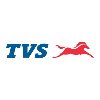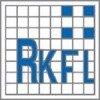Mechanical Engineer
80+ Mechanical Engineer Interview Questions and Answers for Freshers
Asked in Sunrise Cement

Q. Thermodynamics law, How to calculate bearing block size,what type of belt conveyor,bucket elevator and which fixes bucket,which side bucket join, measurements,what is dial gauage and its parts,crasher types, be...
read moreThe interview question covers various topics related to mechanical engineering such as thermodynamics, bearing block size calculation, belt conveyor and bucket elevator types, dial gauge and its parts, crasher types, bearing sleeve, and filler gauge.
Thermodynamics law
Calculation of bearing block size
Types of belt conveyor and bucket elevator
Dial gauge and its parts
Crasher types
Bearing sleeve
Filler gauge lowest count
Asked in Narmada Cement Company

Q. If you were working at our plant in Surat, where the local language is Gujarati, how would you communicate with coworkers as a non-Gujarati speaker?
Effective communication in a multilingual environment requires adaptability and clarity to ensure understanding among coworkers.
Use simple English: Speak clearly and avoid jargon to ensure comprehension.
Visual aids: Utilize diagrams or charts to convey complex ideas visually.
Learn basic Gujarati phrases: Familiarize yourself with common greetings or terms to build rapport.
Encourage feedback: Ask coworkers to repeat or summarize to confirm understanding.
Utilize translation too...read more

Asked in Toyota Industries Engine India

Q. On which planet do human beings live?
Earth is the planet where human beings live.
Human beings live on planet Earth.
Earth is the third planet from the Sun in our solar system.
It is the only known planet to support life.
Earth has a diverse range of ecosystems and environments that sustain human life.
Examples of Earth's features include oceans, mountains, forests, and deserts.

Asked in Barak and Brazos Engineering

Q. You have three boxes: one contains only apples, one contains only oranges, and the third contains both apples and oranges. How can you open just one box and correctly label all the boxes? [ So, this is just one...
read moreOpen the box labeled 'Apples and Oranges' to determine the correct contents and relabel all boxes accordingly.
Open the box labeled 'Apples and Oranges'. It must contain either only apples or only oranges.
If it contains apples, relabel the 'Apples' box to 'Oranges' and the 'Oranges' box to 'Apples and Oranges'.
If it contains oranges, relabel the 'Oranges' box to 'Apples' and the 'Apples' box to 'Apples and Oranges'.
This method works because all boxes are incorrectly labeled.
Asked in Narmada Cement Company

Q. How can I verify your proficiency in Marathi, as stated in your resume?
I am fluent in Marathi, having used it in both personal and professional settings throughout my life.
I have completed my education in Marathi medium, which has strengthened my language skills.
I regularly communicate with family and friends in Marathi, ensuring fluency in everyday conversations.
I have worked on projects where Marathi was the primary language for documentation and presentations.
I can read and write in Marathi, as demonstrated by my ability to draft reports and ...read more

Asked in Barak and Brazos Engineering

Q. How can you measure 4 liters of water using a 5-liter tank and a 3-liter tank when you have running tap water and are not allowed to use markings?
Measure 4 liters using a 5-liter and a 3-liter tank through strategic filling and pouring.
Fill the 5-liter tank completely.
Pour water from the 5-liter tank into the 3-liter tank until the 3-liter tank is full.
This leaves you with 2 liters in the 5-liter tank.
Empty the 3-liter tank completely.
Pour the remaining 2 liters from the 5-liter tank into the 3-liter tank.
Now fill the 5-liter tank again completely.
Pour water from the 5-liter tank into the 3-liter tank until it is full ...read more
Mechanical Engineer Jobs




Asked in Canteen Stores Department

Q. Which is the largest ocean in the world?
The Pacific Ocean is the largest ocean in the world.
The Pacific Ocean covers an area of about 63 million square miles.
It is larger than all the other oceans combined.
It stretches from the Arctic Ocean in the north to the Southern Ocean in the south.
The Pacific Ocean is home to numerous islands, including Hawaii and Easter Island.

Asked in Megha Engineering & Infrastructures

Q. What is a gear, and what are its different types?
Gears are mechanical components that transmit power and motion between rotating shafts. There are various types of gears.
Spur gears are the most common type and have straight teeth.
Helical gears have angled teeth and provide smoother operation.
Bevel gears transmit power between shafts that are not parallel.
Worm gears have a screw-like thread and are used for high reduction ratios.
Planetary gears have a central gear that rotates around other gears.
Rack and pinion gears convert...read more
Share interview questions and help millions of jobseekers 🌟


Asked in Megha Engineering & Infrastructures

Q. Based on your B.Tech internship, how is Bauxite converted into aluminum?
Bauxite is refined to produce alumina, which is then electrolyzed to extract aluminum metal.
Bauxite is primarily composed of aluminum oxide minerals, mainly gibbsite, boehmite, and diaspore.
The Bayer process is used to refine bauxite into alumina (Al2O3) by crushing, grinding, and treating it with sodium hydroxide.
During the Bayer process, impurities are removed, and the resulting alumina is precipitated and then calcined at high temperatures to produce aluminum oxide.
The Hal...read more
Asked in Wavemaker Global

Q. What is the density of water?
The density of water is approximately 1 gram per cubic centimeter.
The density of water is a fundamental property of the substance.
It is commonly used as a reference point for comparing the densities of other substances.
The density of water varies slightly with temperature and pressure.
At 4 degrees Celsius, the density of water is exactly 1 gram per cubic centimeter.
Water is less dense in its solid form (ice) than in its liquid form.

Asked in TVS Motor

Q. When Electric motor production?
Electric motor production started in the late 19th century and has since evolved with advancements in technology.
Electric motor production began in the late 19th century.
The first practical electric motor was developed by Thomas Davenport in 1834.
Advancements in technology have led to the development of more efficient and powerful electric motors.
Electric motor production has grown significantly with the rise of electric vehicles and renewable energy sources.

Asked in Nayara Energy

Q. How many gaskets are used in a floating head heat exchanger?
The number of gaskets in a floating head heat exchanger varies depending on the design and size of the exchanger.
The number of gaskets is typically determined by the number of tube passes in the heat exchanger.
Each tube pass may require multiple gaskets, depending on the design.
The gaskets are used to create a seal between the floating head and the tube sheet.
The number of gaskets can range from a few to several dozen, depending on the size and complexity of the heat exchange...read more

Asked in Euler Motors

Q. Motion of center of gravity of a vehicle when it takes a turn.
The center of gravity of a vehicle shifts towards the outside of the turn, causing a lateral force.
The lateral force causes the vehicle to lean towards the inside of the turn.
The speed of the turn and the height of the center of gravity affect the amount of lateral force.
If the center of gravity is too high, the vehicle may tip over.
Anti-roll bars and suspension systems can help reduce the lateral force and improve stability.

Asked in Tata Motors

Q. How to get power from engine to vehicle & How it run...
Power from engine is transmitted to vehicle through a transmission system which converts engine power into rotational force for the wheels.
The engine generates power which is transferred to the transmission system
The transmission system converts the power into rotational force for the wheels
The wheels then propel the vehicle forward
Different types of transmission systems include manual, automatic, and continuously variable transmissions

Asked in Megha Engineering & Infrastructures

Q. What is a centrifugal pump, and what are its types?
A centrifugal pump is a mechanical device that uses centrifugal force to transport fluids. There are two types: radial and axial.
Centrifugal pumps are commonly used in industrial and domestic applications.
Radial pumps have a volute casing and are used for low flow and high head applications.
Axial pumps have a propeller and are used for high flow and low head applications.
Centrifugal pumps are easy to install and maintain.
They are not suitable for high viscosity fluids or flui...read more

Asked in Megha Engineering & Infrastructures

Q. Describe stress and strain, and explain their relationship using a diagram.
Stress is the force applied per unit area, while strain is the deformation caused by stress.
Stress is measured in units of force per unit area, such as pounds per square inch (psi) or newtons per square meter (N/m²).
Strain is the ratio of the change in length or shape of an object to its original length or shape.
Stress and strain are related by the material's modulus of elasticity, which is a measure of how much the material will deform under stress.
The stress-strain diagram ...read more

Asked in Belrise Industries

Q. What is Seam Welding,Bending of Pipes,Welding Materials .
Seam welding is a process of joining two metal sheets by creating a continuous seam along the joint. Bending of pipes is the process of shaping pipes into desired angles or curves. Welding materials are the materials used in welding processes.
Seam welding is commonly used in the automotive and aerospace industries.
Bending of pipes is done using specialized tools like pipe benders.
Welding materials include filler metals, fluxes, and shielding gases.
The choice of welding materi...read more
Asked in FTS Consulting

Q. What should be the distance between two supports in a single run pipe?
The distance between two supports in a single run pipe depends on the material, size, and weight of the pipe.
The distance between supports for steel pipes is typically 10-12 feet.
For PVC pipes, the distance can be shorter, around 4-5 feet.
Consider factors like pipe material, size, weight, temperature, and pressure when determining support spacing.

Asked in Golden Edge Engineering

Q. 1) Types of boiler 2) What is ESP ( Electrostatic precipitater) 3) what is thermodynamic cycle & types of thermodynamic cycle?
Types of boilers include fire tube, water tube, and electric boilers. ESP is a device used to remove particles from exhaust gas. Thermodynamic cycles include Carnot, Rankine, and Brayton cycles.
Types of boilers: fire tube, water tube, electric
ESP: device to remove particles from exhaust gas
Thermodynamic cycles: Carnot, Rankine, Brayton


Q. Why is not proper environment ,rules and regulations?
Proper environment, rules and regulations are necessary for safety, efficiency and productivity.
Proper environment ensures the safety of workers and equipment.
Rules and regulations ensure compliance with legal and ethical standards.
Proper environment, rules and regulations promote efficiency and productivity.
Lack of proper environment, rules and regulations can lead to accidents, injuries, and loss of productivity.
Examples include lack of safety equipment, inadequate ventilat...read more

Asked in Lam Research

Q. Why are manholes circular?
Manholes are circular because they cannot fall through their own opening.
Circular manholes cannot fall through their own opening, unlike square or rectangular ones.
Circular shape distributes weight evenly, making it easier to move and handle.
Circular shape also reduces the risk of injury from sharp corners.
Circular manholes are easier to manufacture and install.
Circular shape allows for easier access from any angle.
Circular manholes have been used for centuries, dating back t...read more

Asked in Tata Motors

Q. What is the difference between a petrol engine and a diesel engine?
Petrol engines use spark ignition while diesel engines use compression ignition.
Petrol engines use a spark plug to ignite the fuel-air mixture while diesel engines compress the air to a high enough temperature to ignite the fuel.
Petrol engines are generally more fuel-efficient at high speeds while diesel engines are more fuel-efficient at low speeds.
Petrol engines are typically quieter and smoother while diesel engines are more rugged and durable.
Petrol engines are more commo...read more

Asked in Ramkrishna Forgings

Q. How many types of CNC machines are there?
There are several types of CNC machines including milling machines, lathes, plasma cutters, and routers.
Milling machines
Lathes
Plasma cutters
Routers

Asked in Godrej Process Equipment

Q. What is Rotation and Revolution in CNC machining?
Rotation in CNC machining refers to the spinning of the cutting tool, while revolution refers to the movement of the workpiece around the cutting tool.
Rotation involves the cutting tool spinning on its axis to remove material from the workpiece.
Revolution involves the workpiece moving around the cutting tool to create the desired shape.
Rotation and revolution work together to accurately shape the workpiece in CNC machining processes.
Examples include turning operations where t...read more

Asked in Sundaram Clayton

Q. What kind of questions are asked in supply chain management?
SCL management interview questions focus on leadership, project management, and technical skills relevant to engineering.
Describe your experience with supply chain logistics in engineering projects.
How do you prioritize tasks when managing multiple projects?
Can you provide an example of a successful team project you led?
What strategies do you use to ensure quality control in engineering processes?
How do you handle conflicts within a team during a project?

Asked in Accurate Engineering Company

Q. Which field of mechanical engineering are you most knowledgeable in?
I have extensive knowledge in thermodynamics, fluid mechanics, and materials science, which are crucial for mechanical engineering applications.
Thermodynamics: I excel in understanding energy transfer and the laws of thermodynamics, which are essential for designing engines.
Fluid Mechanics: I have practical experience in analyzing fluid flow, which is vital for HVAC systems and aerodynamics.
Materials Science: I am knowledgeable about material properties and selection, ensurin...read more

Asked in AFM SOLAR SYSTEM

Q. what is solar system, and its type. what is ongrid and offgrid system.
The solar system refers to the sun and all the celestial objects that orbit around it. There are two types: ongrid and offgrid systems.
The solar system consists of the sun, planets, moons, asteroids, comets, and other celestial bodies.
Ongrid systems are connected to the main electrical grid and feed excess energy back into the grid.
Offgrid systems are not connected to the main grid and rely on batteries or other storage methods to store excess energy.
Ongrid systems are common...read more
Asked in Mark Cables

Q. How would you handle medical insurance?
I would ensure your medical insurance is properly managed and utilized.
Review the coverage provided by the insurance plan
Ensure timely payment of premiums to avoid any lapses in coverage
Keep track of medical expenses and file claims accurately
Stay informed about any changes in the insurance policy or network providers

Asked in SNL Bearings

Q. What are SI and CI engines?
SI and CI engines are types of internal combustion engines used in vehicles and machinery.
SI engine stands for Spark Ignition engine, also known as gasoline engine.
CI engine stands for Compression Ignition engine, also known as diesel engine.
SI engines use a spark plug to ignite the fuel-air mixture, while CI engines use compression to ignite the fuel.
SI engines are commonly used in cars, motorcycles, and small machinery, while CI engines are used in larger vehicles and machi...read more

Asked in Lam Research

Q. What is the Prandtl number?
Prandtl number is a dimensionless number used in fluid mechanics to describe the ratio of momentum diffusivity to thermal diffusivity.
It is named after the German physicist Ludwig Prandtl.
It is used to predict fluid flow behavior and heat transfer in different materials.
It is calculated as the ratio of kinematic viscosity to thermal diffusivity.
It is important in the study of boundary layers, turbulence, and convection.
For example, air has a Prandtl number of approximately 0....read more
Interview Questions of Similar Designations
Interview Experiences of Popular Companies








Reviews
Interviews
Salaries
Users

















